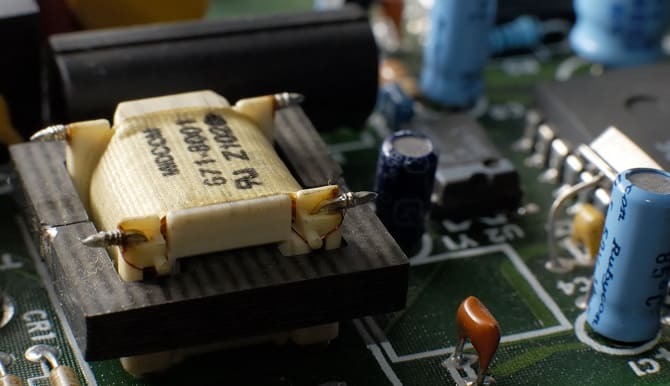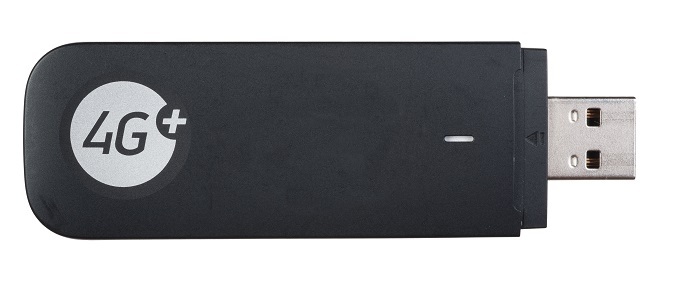
 Data Structure
Data Structure Networking
Networking RDBMS
RDBMS Operating System
Operating System Java
Java MS Excel
MS Excel iOS
iOS HTML
HTML CSS
CSS Android
Android Python
Python C Programming
C Programming C++
C++ C#
C# MongoDB
MongoDB MySQL
MySQL Javascript
Javascript PHP
PHP
- Selected Reading
- UPSC IAS Exams Notes
- Developer's Best Practices
- Questions and Answers
- Effective Resume Writing
- HR Interview Questions
- Computer Glossary
- Who is Who
What is the full form of DMC?
Introduction
Dual Modem Cards (DMC) enable the use of two cellular modems on a single device. In order to connect to two distinct cellular networks, these cards often employ two SIM cards. This provides redundancy and enhanced dependability for data transmission, particularly in locations with poor network coverage or heavy data traffic.

Industrial applications including remote monitoring, fleet management, and machine-to-machine communication often make use of dual modem cards. They may be used to boost network capacity, offer failover functionality, and enhance data transmission dependability.
Dual modem cards may save money by allowing customers to choose the best cellular network for a certain region based on coverage and cost in addition to providing redundancy and dependability. By letting data traffic to be split over two networks, they may also enhance network performance by lowering network congestion and boosting speed and throughput.
Types of Dual Modem Cards
Dual modem cards come in a variety of varieties, each of which is created for a particular purpose or use case. Some of the most common types of dual modem cards include
Dual-SIM Dual-Modem Cards These cards are designed to handle two distinct cellular modems and provide dual SIM functionality on a single device. For each SIM card, they typically use a separate modem, and they can support a variety of cellular networks and frequencies.
Multi-SIM Dual-Modem Cards In order to boost network capacity and stability, these cards enable multiple cellular modems and numerous SIM cards, often up to four or more.
Bonding Dual-Modem Cards These cards bind several network connections together using two or more cellular modems, increasing bandwidth and network capacity. High-bandwidth applications like video streaming, remote monitoring, and other data-intensive applications often employ bonding dual-modem cards.
Hybrid Dual-Modem Cards These cards provide redundancy and bonding capabilities in a single device by combining the functions of a dual-SIM dual-modem card and a bonding dual-modem card. Dual-modem hybrid cards are intended to provide enhanced network capacity for data transmission as well as dependability.
Advantages of Dual Modem Cards
Using dual modem cards in applications that need cellular data transmission has a number of benefits. Some of the main advantages include
Increased Reliability Redundancy offered by dual modem cards enables data to be sent via two different cellular networks. As a result, data loss or interruption is less likely to occur in locations with weak network coverage or heavy data traffic, increasing dependability.
Improved Network Capacity Multiple cellular modems can be supported by dual modem cards, increasing network capacity and lowering network congestion. Applications requiring high-bandwidth data transport, such video streaming or remote monitoring, may benefit especially from this.
Cost Savings Dual modem cards enable customers to choose the best network for a certain area depending on coverage and price, which may assist save cellular data expenditures. This may result in considerable financial savings, especially for applications that need high data transmission rates.
Increased Security By offering several cellular connections, dual modem cards may increase security by making it more difficult for hackers to intercept or interfere with data transit.
Flexibility Different types and configurations of dual modem cards are available, offering flexibility and scalability for a variety of applications and use cases.
Applications of Dual Modem Cards
Many different applications that call for dependable and high-bandwidth cellular data transfer use dual modem cards. Some of the common applications of dual modem cards include
Industrial Monitoring and Control Industrial monitoring and control applications, such as remote monitoring of machinery, infrastructure, and equipment, often make use of dual modem cards. Dual modem cards provide high-speed, dependable data transmission through cellular networks, allowing industrial assets to be monitored and controlled in real time.
Fleet Management Applications for fleet management such as vehicle tracking, telemetry, and driver behaviour monitoring also make use of dual modem cards. Real-time updates on a vehicle's position, speed, and performance are made possible by dual modem cards, which allow dependable and quick data transmission through cellular networks.

Smart City Applications Applications for smart cities, such as traffic control, public safety, and environmental monitoring, are increasingly using dual modem cards. In order to send data reliably and quickly across cellular networks, dual modem cards are required. These cards provide real-time information on traffic flow, air quality, and other crucial variables.
Disaster Response and Recovery Applications for disaster response and recovery such as emergency communications and response coordination require dual modem cards as well. Real-time updates on emergency circumstances and response initiatives are made possible by the dependable and quick data transmission offered by dual modem cards via cellular networks.
Military and Defense Applications In military and defence applications like communications on the battlefield and situational awareness, dual modem cards are also used. Real-time updates on troop movements, supplies, and combat conditions are possible because of the dependable and quick data transmission offered by dual modem cards through cellular networks.
Conclusion
A dependable and adaptable solution for applications requiring cellular data transmission is provided by dual modem cards. Dual modem cards boost network capacity and redundancy by supporting several cellular modems, increasing dependability and lowering the chance of data loss or interruption. They are extensively utilised in military and defence applications, fleet management, smart city applications, industrial monitoring and control, and disaster response and recovery. Dual modem cards are a great option for a variety of cellular data transmission applications due to their many benefits, including better dependability, improved network capacity, cost savings, increased security, and flexibility.
FAQs
Q1: How do dual modem cards help reduce cellular data costs?
Ans: Dual modem cards enable customers to choose the best network for a certain area depending on coverage and price, which helps save cellular data expenditures. This may result in considerable financial savings, especially for applications that need high data transmission rates.
Q2: How do dual modem cards improve security?
Ans: By offering several cellular connections, dual modem cards may increase security by making it more difficult for hackers to intercept or interfere with data transit.
Q3: What factors should be considered when choosing a dual modem card for a specific application?
Ans: When selecting a dual modem card for a particular application, one should take into account the number of SIM cards needed, the area's network coverage, the volume of data to be transferred, and the necessary level of reliability.

